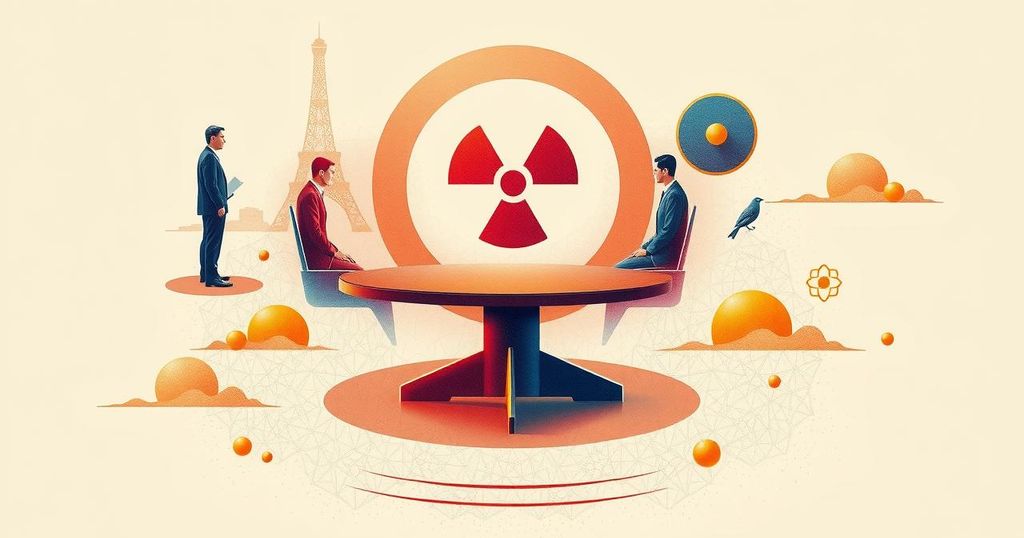President Trump seeks to negotiate a nuclear deal with Iran amid ongoing maximum pressure tactics aimed at crippling its economy through oil sanctions. He indicated a preference for diplomacy while making controversial remarks about the Gaza Strip. The situation remains tense as Iran’s support for Hamas complicates regional dynamics.
On Wednesday, President Donald Trump expressed his desire to negotiate a new nuclear agreement with Iran, following a strategy of ‘maximum pressure’ on the country. He emphasized the immediate need to begin discussions on this deal in a post on Truth Social, while also downplaying reports of U.S. and Israeli military actions against Iran. Trump remarked, “I would much prefer a Verified Nuclear Peace Agreement, which will let Iran peacefully grow and prosper.”
His comments coincided with the signing of a memorandum that reinstated a campaign aimed at crippling Iran’s oil exports, particularly targeting sales to China. As the third-largest oil producer within OPEC, Iran’s economic stability is significantly threatened by these measures. Following this development, crude oil prices experienced a decline exceeding 1% on Wednesday morning.
Despite the implementation of stringent measures, Trump indicated reluctance on the matter, stating during his Oval Office remarks that he hoped the measures would not need to be fully deployed. He remarked, “We don’t want to be tough on Iran, we don’t want to be tough on anybody but they just can’t have a nuclear weapon,” and he expressed a willingness to engage with Iranian leadership.
Importantly, Trump’s recent statements concerning Iran are further complicated by his controversial remarks about the Palestinian situation in the Gaza Strip, which he discussed alongside Israeli Prime Minister Benjamin Netanyahu. He suggested that Palestinians should vacate the Gaza Strip, allowing the U.S. to take control and initiate rebuilding efforts. The region has suffered enormously due to the ongoing conflict stemming from the conflict with Hamas, which Iran supports.
Trump’s outreach to Iran also comes in the context of heightened tensions in the Middle East, as Israel and Hamas have engaged in multiple conflicts in recent years. The risk of a broader regional war remains a concern, particularly given Iran’s support for Hamas and the recent military engagements between Iran and Israel.
The geopolitical dynamics in the Middle East involve complex relationships, particularly between the United States, Iran, and Israel. Following the United States’ withdrawal from the Joint Comprehensive Plan of Action in 2018, tensions escalated, prompting a renewed focus on eradicating Iran’s nuclear capabilities. Trump’s maximum pressure campaign aims to diminish Iran’s oil exports, thereby crippling its economy while Iran’s support of groups like Hamas further complicates peace efforts in the region following ongoing violent conflicts.
In summary, President Trump’s desire to negotiate a nuclear deal with Iran contrasts sharply with his maximum pressure campaign on the country, which seeks to eliminate Iran’s oil sales. His willingness to communicate with Iranian leaders reflects a desire for diplomatic resolution, while his statements regarding the Gaza Strip complicate relations further. As tensions in the region remain high, the U.S.’ approach will have significant implications for future stability.
Original Source: www.cnbc.com






